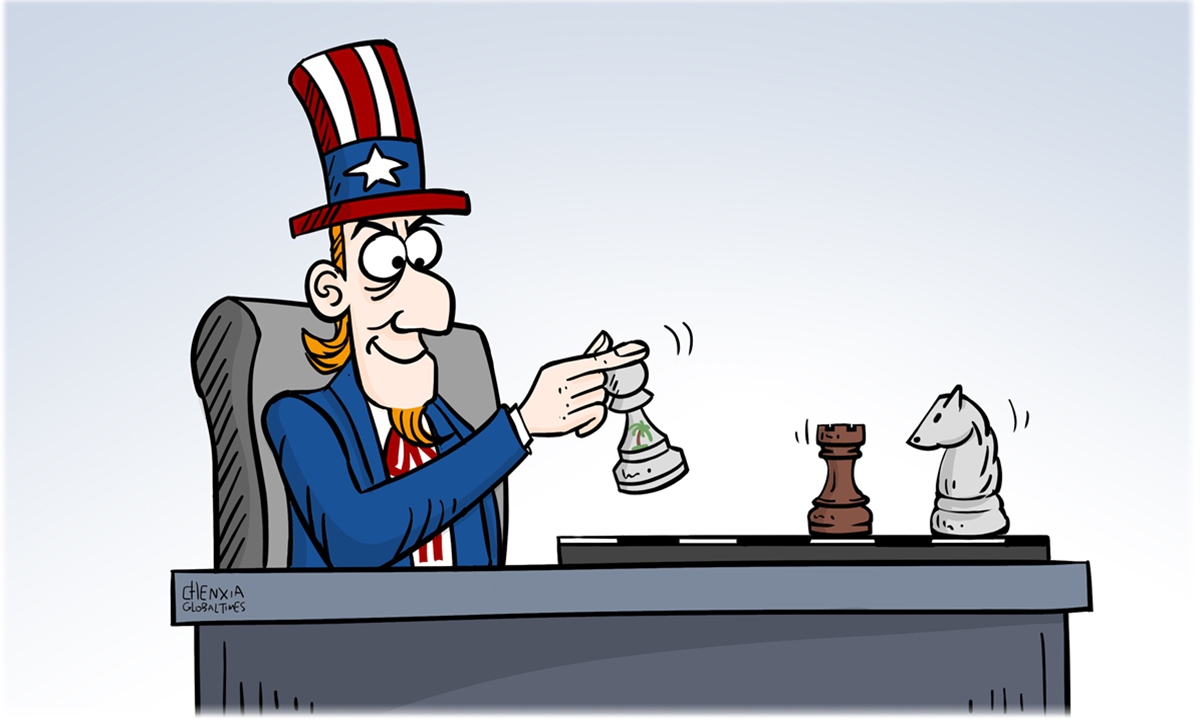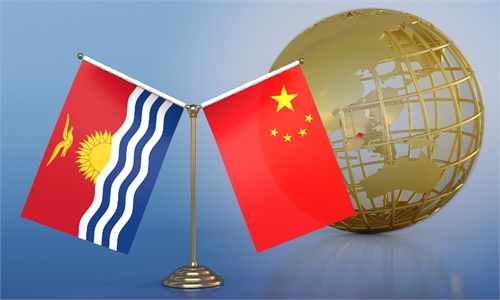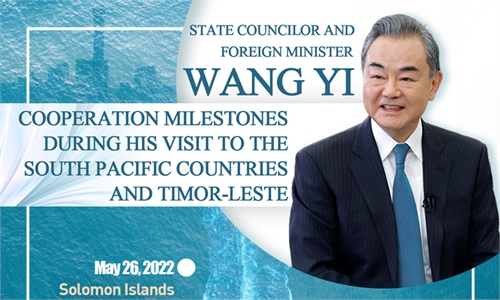US once used Pacific Islands for nuke tests, now it wants to use them against China

Illustration: Chen Xia/Global Times
On February 28 1954, Joseph de Bruhm, a 25-year old Marshall Islands resident, thought the world was "falling apart" when he looked up in shock as the normally sapphire colored sky over the pristine and peaceable Pacific Ocean suddenly transformed in thunderous rumbles into a blazing inferno. Nobody on the islands and the neighboring atolls knew at the time that the amorphous colors that started to fall around them were poisonous nuclear fallouts, which would bring carcinogenic effects to either change their lives forever, or cut them short.That devastating explosion came from "Operation Castle Bravo," the mightiest among the 67 nuclear weapon tests carried out in the Marshall Islands between 1946 and 1958 by the US. It was 1,000 times more powerful than the atomic bomb that razed the Japanese city of Hiroshima in 1945.
At the end of the World War II, the Marshall Islands had been a testing ground for the US nuclear program, and 3.1 million cubic feet of US-produced radioactive soil and debris, including lethal amounts of plutonium were deposited there causing hazardous contamination and long-lasting health risks to the islands and its innocent residents.
For decades since then, the Marshall Islands, along with other Pacific island countries (PICs), had been regarded by the US as a negligible peripheral region with its outlying alien shores which would only sometimes captivate the occasional curious caprices of those with interest in the exotic remote. The Compact of Free Association (COFA), a series of treaties for the US to provide aid and support to some of the island countries, had been largely a skeletal framework of unsubstantiated promises with scanty gratuities.
However, in recent years, there seems to be a sudden upsurge of dubious interest from Washington in the PICs, with renewed pledges of aid funding and assistance programs. The Biden administration is reportedly set to send its special envoy, the veteran diplomat Joseph Yun, to Majuro, capital of the Republic of Marshall Islands on Tuesday to discuss and negotiate for the extension of the COFA agreement which is due to expire next year. It is said that similar negotiations for the same purpose will also take place with the Federated States of Micronesia and the Republic of Palau.
The "Indo-Pacific Strategy," which serves now as the predominant guideline for the US foreign affairs and security policies, purports to contain, counter and impede China's peaceful development in order to maintain and expand the US' regional and global hegemony. With such a morbid outlook of the world, the Pacific region has been strategically identified by Washington as a key front for contestation, and even confrontation, with China.
China's mutually beneficial cooperation with the island countries has been enormously successful and fruitful, especially in the recent decade. China's aid programs, joint projects, investments and other economic and trade activities have brought about sea-changing improvement to the island countries' economies, upgrading local infrastructure, alleviating local poverty and significantly uplifting PIC people's livelihoods and wellbeing.
The highly proactive and productive partnership has never targeted at any third party, but it has absurdly incurred unduly nervousness and fierce hostility from the Biden administration. Washington has even been mobilizing its allies in the region in its malicious scare and smear campaign to fabricate and hype up the "China threat theory," so as to coax and coerce the island countries into submitting to the West's anti-China scheme.
In other words, Washington's renewed political and economic investment in the Pacific region has ulterior political motives. What previously served as its nuclear weapon testing grounds and nuclear waste dumping ground is now conceived to be an arena for its strategic contestation with China.
Although mostly small in size and population and underdeveloped economically, the PICs are independent and sovereign nations with dignity and their own long-term national interest to look after. They are strongly aversive to the West's exploitation and suppression in colonial times, determinedly not willing to act as pawns to serve Washington's strategy, to be instrumentalized or even weaponized in Washington's power game against China.
As the biggest developing country, China adheres to the principles of mutual respect, equality, mutually benefits, openness and inclusiveness to promote the comprehensive strategic partnership with the PICs, which, as China's State Councilor and Foreign Minister Wang Yi recently said at the conclusion at his historical visit to the South Pacific, "will surely achieve steady and sustained growth, bear more fruits and benefit the people of the PICs."
The author is a professor and Executive Director of the Centre for Studies of the Asia-Pacific Region at East China Normal University in Shanghai. opinion@globaltimes.com.cn



